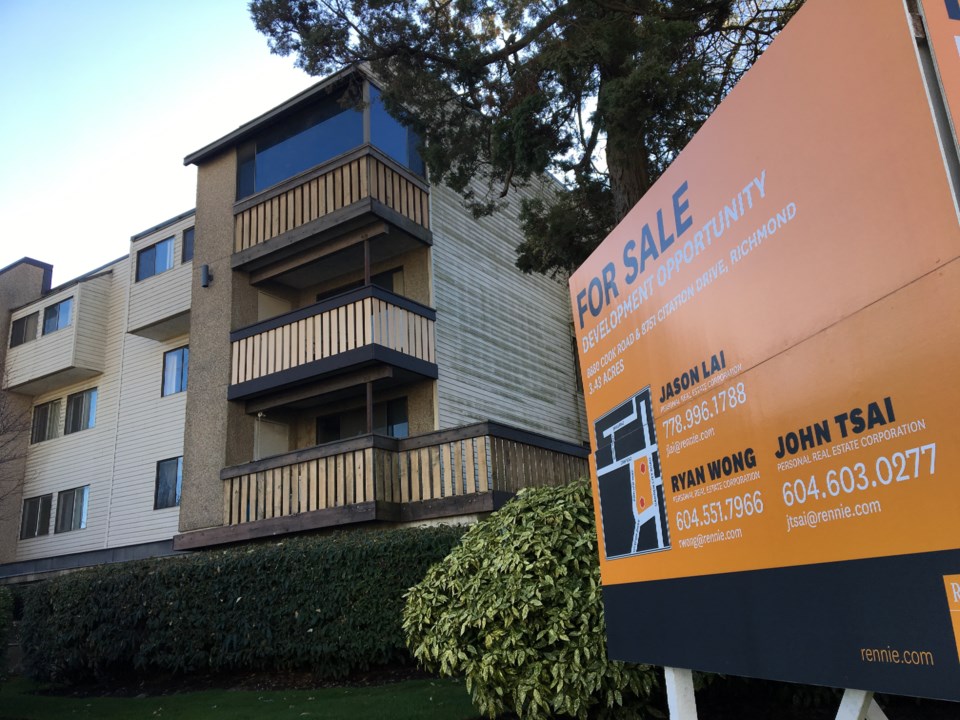I can’t say I’d ever heard of a strata “wind up” until our story last week about some apartment owners who opposed the sale of their complex in central Richmond.
A wind up, or termination, is when a whole strata complex is sold as one. Until recently, the Strata Property Act stipulated that a wind up required the consent of 100 per cent of the owners, which meant it rarely happend because, one, it’s hard to get 100 per cent consensus on the time of day. And, two, if there was unanimous agreement, no one would be raising a fuss — well, no owners anyway.
Last year, the Liberal government changed the requirement from 100 to 80 per cent, as long as the sale doesn’t create undue hardship for the minority. But undue hardship is exactly what a few owners at Ascott Wynde claim they’ll be facing because, even if they are relatively well compensated for their units, it still won’t be enough to buy a comparable home, given Richmond’s housing market. The issue was taken to court and earlier this week a judge ruled in favour of the majority.
This case is the first of its kind in Richmond since the requirements have changed — but it won’t be the last. As Coun. Carol Day put it, watch for “sharks who are currently circling other complexes in the area.” Indeed, the realtor who helped in the sale of Ascott told the News his agency is currently looking to sell other such properties.
It is a conundrum. It seems seriously undemocratic to let such a small minority determine the outcome for the whole group. At the same time, thanks to the dearth of affordable housing in Richmond, there is a very real risk of leaving people homeless. Add to the mix speculators who are buying units to park their money and sell when the time is right.
What’s to stop an investor, or a few of them, from buying enough units to gain a majority share, or at least tip the balance, let the property fall into disrepair, then sell the whole shebang for maximum profit?
Yes, people should be able to govern their own properties and do what’s in their best interests. A strata council member speaks to that point on our letters page far better than I. But, at the same time, the lack of affordable housing is a pressing issue that is affecting the community as a whole.
More wind ups, which are sure to come now that this precedent has been set, are going to exacerbate the problem.
What we need to see is governments, and stratas, getting out ahead of the problem to ensure two things: One, the sale of a complex truly reflects the wishes of 80 per cent of those who actually live there. Two, there are places for residents to move to. Requiring the developer build something comparable, may help with that.
In today’s story the lawyer for the strata says, “the market has spoken.” It seems to me “the market” has been speaking loud and clear for some time now. The result has been windfall profits for some, a housing crisis for others.
For sure, a strata with 80 percent of its residents’ support should have the right to sell, but let’s make sure those are actual residents. And when it comes to deciding what should replace those ageing, but affordable, complexes, perhaps “the market” shouldn’t be the only voice in the debate.



